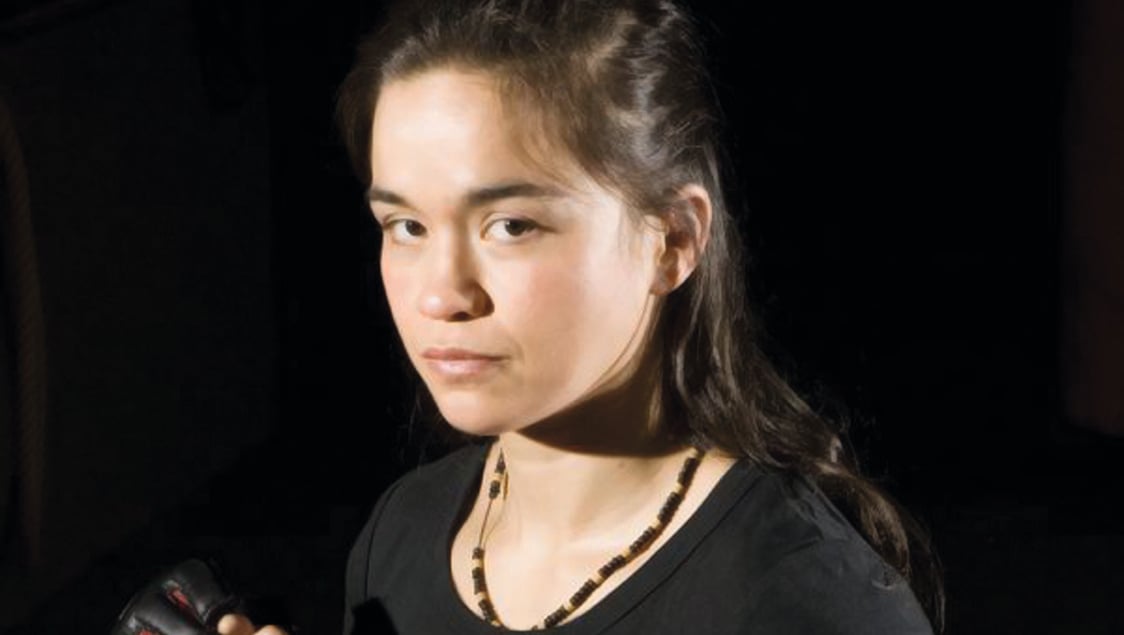
Issue 059
February 2010
Professional fighter Rosi Sexton is a sports therapist and osteopath-in-training. She has fought in countries such as Russia, Canada and the USA, and is ranked as one of the top competitors in her weight class.
I’ve noticed that fighters often seem to have a long list of people to thank after a fight. If I wanted to build an ideal support team for a fighter, who would I need to find?
MMA is an individual sport, but don’t let that fool you. No top-level fighter goes into the cage alone. Behind the scenes there are always numerous coaches, advisors, therapists and other support staff. The exact make up of the coaching team will vary from one camp and from one fighter to another, but here’s a general outline of the roles that may need to be filled.
- Manager: Finds you fights, negotiates with promoters, helps you get sponsorship and media coverage.
- MMA coach: Oversees your day-to-day training, helps with technique, tactics and strategy.
- Specialist coaches: Muay Thai / Boxing / Wrestling / BJJ / etc. Coach you on the individual sports that make up MMA.
- Strength and conditioning coach: Gets you stronger, faster, more powerful and able to go for longer.
- Nutritionist: Advises on diet and weight cutting. May offer just general tips, or a specific day-to-day eating plan.
- Physical therapist / Osteopath / Chiropractor / Masseur: To deal with injuries, rehabilitation, injury prevention and recovery from hard training.
- Sports psychologist: Helps with the mental aspects of the game and coaches skills for dealing with pressure and pre-fight nerves.
- Training and sparring partners: Perhaps the most important part of any fighter’s support team.
In many cases, these roles will overlap. An MMA coach may double as a BJJ coach, and a strength and conditioning expert may also cover the fighter’s diet and nutrition advice. Not all will be a regular part of the team – for example, many fighters have a physiotherapist or osteopath who they visit only when they have an injury they need treating. However, it helps to have someone you can turn to in each role who understands the demands of your sport and who you already have a good working relationship with.
I’m not lucky enough to train at a gym that has all of this in one place. How can I go about finding good people to work with?
Where possible, word of mouth is the best way to find what you’re looking for. Speak to your coaches, training partners and other fighters you know and ask who they work with. Sometimes support staff will be attached to a particular team or gym, but other times they may work with a number of fighters from different gyms.
The Internet is a great way of making connections. Forums can be a good source of recommendations and advice as long as you don’t believe everything you read. Social networking sites such as Facebook can also be valuable tools for building and communicating with your support network.
I have all these great people I’m working with, but sometimes I get frustrated when they all give me conflicting advice!
It’s important that everyone on your support team is on the same page. Being given conflicting advice will slow your progress and at worst confuse you and cause you to make mistakes. In an ideal world everyone on your support team would be talking and giving feedback to each other. Your strength coach needs to talk to your nutritionist and physical therapist; your sports psychologist will need feedback from your specialist coaches; your MMA coach should be talking to everyone. It isn’t always that easy, but do whatever you can to keep the lines of communication open.
Above all, make sure you understand why you are being asked to do something. Listen to and trust your coaches, but also try things out for yourself and respectfully ask questions. Having a good support team is essential, but don’t forget that the final responsibility when you step in the cage is your own.










